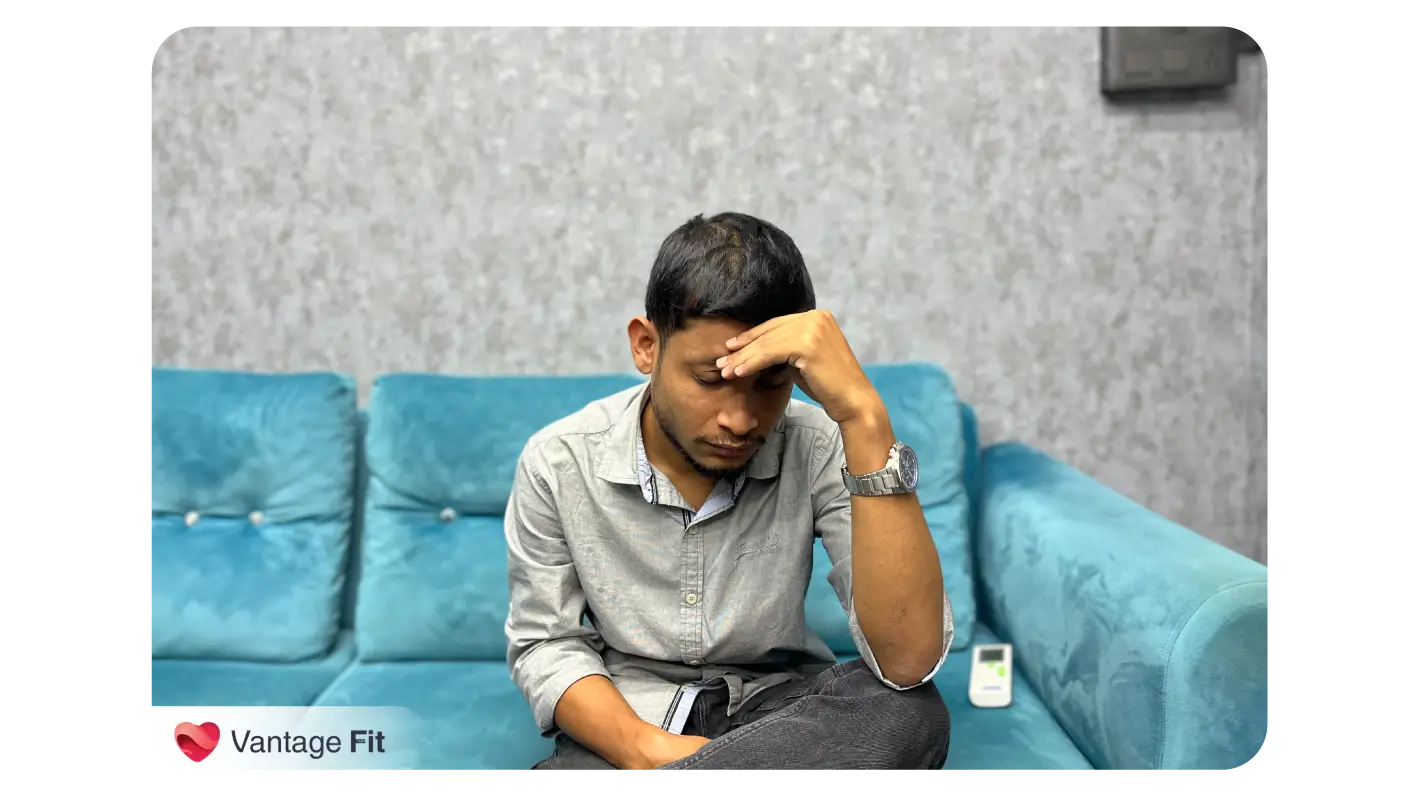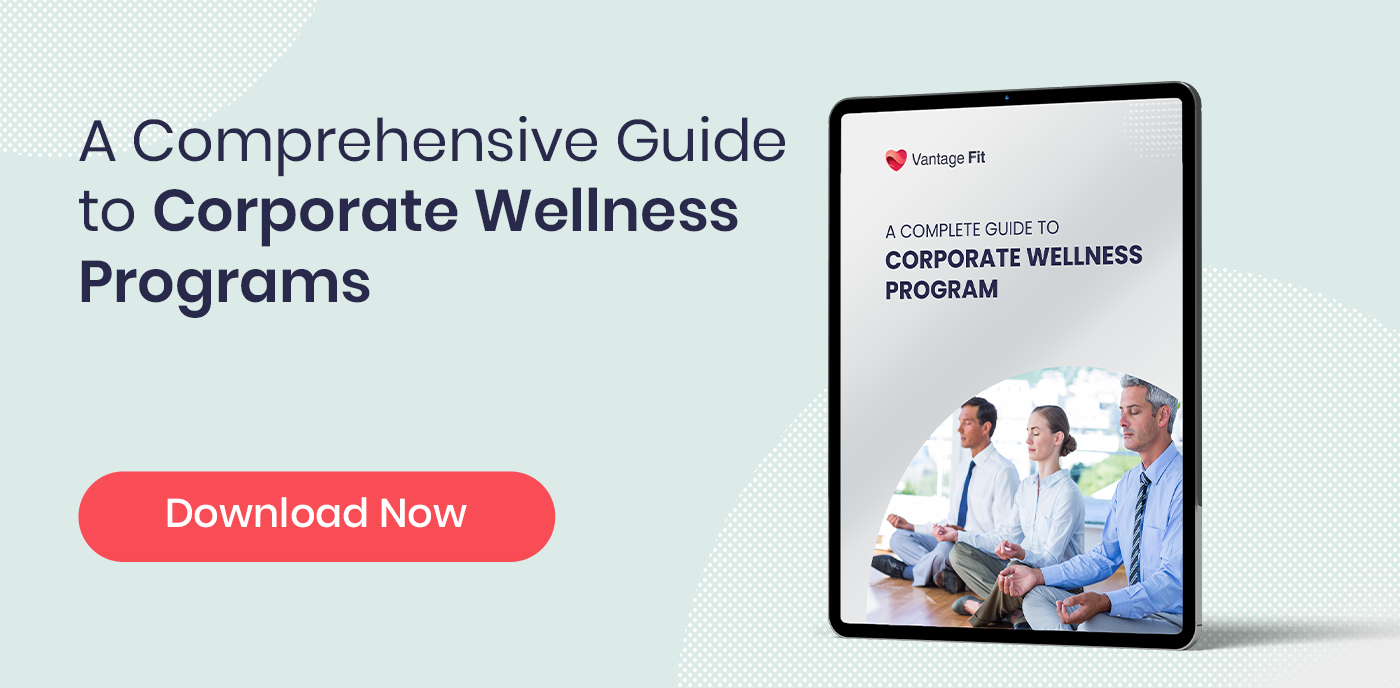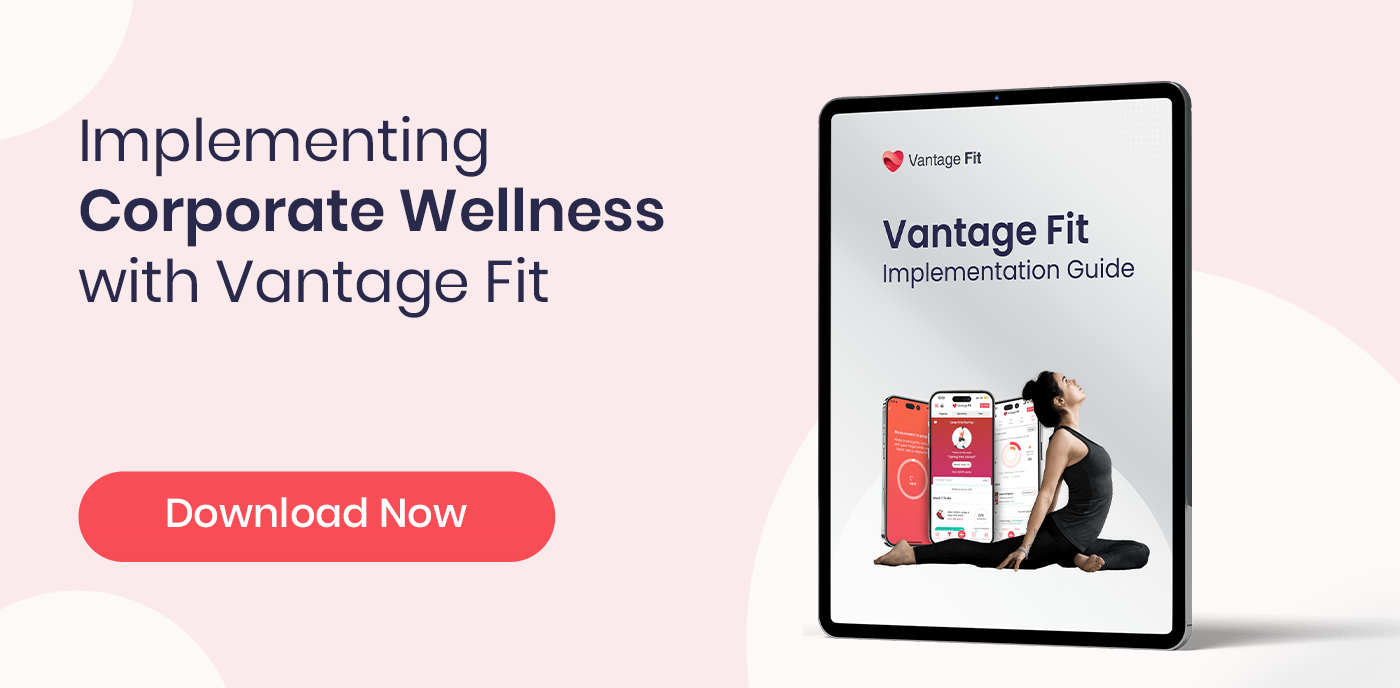Occupational Wellness: Key Benefits, Aspects, and Ways to Improve
Workplace wellness is no longer optional; it's a strategic advantage. As employee expectations shift, companies that prioritize occupational wellness lead the way in building stronger, more resilient teams.
Today's workforce seeks more than a paycheck. They want roles that offer meaning, growth, and a healthy balance between work and personal life.
When you support occupational wellness, you create an environment where employees feel valued and connected to their health. This sense of alignment fuels motivation improves focus and naturally drives better results.
Employees who feel well-supported don't just perform better, but stay longer, collaborate more, and become champions of your culture.
Occupational wellness also helps future-proof your organization. As industries evolve and pressures mount, employees need more than systems and deadlines, they need space to think, recharge, and contribute meaningfully.
When you invest in creating that balance, you're not just improving work life today, you're building a workforce ready for tomorrow.
Let's examine the key aspects of occupational wellness and consider how you can incorporate them into your organization.
What is Occupational Wellness?

Occupational wellness is the foundation of a thriving workforce. It goes beyond simply filling positions. It's about enabling your employees to pursue work that feels purposeful, rewarding, and aligned with who they are.
When people find meaning in what they do, they engage more deeply, contribute more consistently, and grow more confidently. As an employer, your job is to create the kind of workplace where that happens by design, not by chance.
At its core, occupational wellness is about alignment. It connects individual strengths and aspirations with business objectives to benefit both. When you match the right people with the right roles, offer them room to evolve, and support their overall well-being, you transform your organization into a place where people don't just work but thrive.
This isn't about adding another wellness program; it's about embedding a people-first philosophy into how work is structured, managed, and celebrated.
Creating that alignment requires intention. It means designing roles that stretch and inspire without overwhelming employees, and offering feedback that guides without pressure.
It means building a culture where autonomy is respected, creativity is encouraged, and personal boundaries are seen as strengths, not a liability. When these elements come together, work becomes energizing, not exhausting.

Occupational wellness is also a long-term investment. It helps you retain top talent, reduce burnout, and cultivate a sense of ownership within your teams. Employees are no longer just clocking in; they're contributing to something they believe in.
They also maintain a healthy balance between work and life, and when that happens, your business doesn’t just meet its goals — it exceeds them
This is where employee satisfaction turns into loyalty, employer branding gains substance, and your workplace becomes a magnet for talent. Because in a competitive market, offering a job isn't enough. Offering purpose, balance, and growth is what sets great companies apart.
Key Aspects of Occupational Wellness
Occupational wellness doesn't come from surface-level perks; it's embedded in how your organization operates. Supporting wellness means designing a culture that meets the real needs of your people.
You're not just building jobs; you're building experiences that foster purpose, performance, and a sustainable balance between work and life.
Here's what that looks like in action:
Alignment with Personal Identity
Employees do their best work when their roles align with their values and strengths. When people see their responsibilities as an extension of who they are, they stay engaged longer and contribute more intention. Designing roles around individual purpose fosters more profound commitment.
Psychological Safety
Trust and openness are foundational to any healthy workplace. When employees feel safe sharing ideas, admitting mistakes, or voicing concerns, they're more creative, collaborative, and confident. Creating psychological safety invites innovation while reducing anxiety and fear of failure.
Ownership and Autonomy
Autonomy empowers people to take pride in their work. When employees have room to make decisions, lead projects, and manage their processes, they feel trusted, and trust inspires accountability. Empowered teams drive better outcomes with greater efficiency.
Growth Without Constant Hustle
Professional growth should elevate employees, not exhaust them. Actual development happens when learning is consistent but manageable. Avoid glamorizing overwork. Instead, promote a pace that allows for progress without burnout and encourages reflection alongside ambition.
Recognition Beyond Rewards
Everyone wants to feel valued. Recognition doesn't have to mean big bonuses or formal awards. Simple, timely, and sincere acknowledgment of effort can transform morale. A culture of appreciation fosters loyalty and keeps motivation high.
Space for Individuality
Employees want to bring their whole selves to work. By encouraging individuality, whether in work styles, communication, or creativity, you make space for authenticity and deeper engagement. When people feel accepted, they perform to their fullest potential.
Clear Role Expectations
Clarity is a form of support. When employees understand their responsibilities, how success is measured, and their goals, they work with focus and confidence. It reduces stress and boosts efficiency across the board.
Respect for Personal Rhythms
Not everyone operates on the same schedule or in the same way. Respecting personal rhythms through hybrid models, flexible hours, or async workflows supports both productivity and well-being. Flexibility helps people integrate work with the rest of their lives more naturally.
When these aspects come together, occupational wellness becomes more than an initiative; it becomes a lived experience. Employees feel respected, energized, and connected to their work. And that's when they do their best for your business.
Why is Occupational Wellness Important?

Occupational wellness is more than just a soft metric; it is a strategic lever for business success
When employees feel disconnected from their roles, it shows. Focus drops, collaboration weakens, and creativity stalls. Over time, this misalignment leads to disengagement, higher turnover, and lower team morale.
On the other hand, when you build a workplace that supports wellness, everything improves. Employees feel more connected, confident, and valued. They contribute meaningfully, stay longer, and bring their best selves to work. This alignment strengthens both individual performance and organizational outcomes.
Companies that prioritize occupational wellness also stand out in the talent market. Today's workforce, especially Millennials and Gen Z, actively seeks employers who respect their time, support mental health, and promote a healthy balance between work and life.
Wellness is not a perk. It is a productivity multiplier. It reduces absenteeism, lowers healthcare costs, and fosters a culture where people feel motivated to perform.
Investing in occupational wellness supports your people and builds a stronger, more resilient company.
Benefits of Occupational Wellness
When occupational wellness is a core part of your organizational culture, you do more than just boosting employee morale.. You create a high-performing, future-ready workforce that drives sustainable business growth. Here are the key benefits your company can expect:
- Higher levels of job satisfaction and morale
When employees feel fulfilled in their roles, they bring more energy, optimism, and commitment to their work. This positive mindset increases daily performance and reduces internal friction.

- A work culture rooted in genuine work-life balance
Employees who feel supported in balancing professional responsibilities with personal well-being are less likely to experience stress, disengagement, or burnout. Promoting balance between work and life creates a healthier and more productive environment.
- Stronger career development and improved retention
Employees stay longer in organizations that support their growth. By aligning their career paths with individual goals and providing development opportunities, you build loyalty and reduce the cost of constant rehiring.
- Lower levels of burnout and fewer mental health challenges
Occupational wellness initiatives—such as flexible hours, manageable workloads, and mental health support—help prevent chronic stress. This directly contributes to emotional well-being and helps maintain long-term productivity.
- Greater team engagement and smoother collaboration
A well team communicates better, supports one another, and works more cohesively. Occupational wellness fosters trust and psychological safety, which improves teamwork and innovation.
- Reduced sick days and lower absenteeism
Employees who are mentally and physically well are less likely to take unplanned leaves. A consistent, present workforce ensures better continuity and smoother operations.

- A stronger employer brand in a competitive talent market
Organizations that prioritize wellness attract better talent. Job seekers increasingly choose companies that support work-life balance and care about employee well-being, making wellness a key differentiator.
- Improved financial performance through lower turnover costs
Replacing an employee is expensive. Improving occupational wellness can reduce attrition and retain skilled professionals, saving your organization significant time and resources.
- Deeper trust and loyalty across your workforce
When people feel seen, heard, and valued, they invest emotionally in the organization's mission. This trust builds long-term loyalty and transforms employees into advocates for your company.
Occupational wellness isn't a side initiative. It's a foundational element of sustainable growth, employee satisfaction, and business resilience. When you prioritize wellness, you invest directly in your people and your success.
What are Some Poor Occupational Wellness Signs?
Occupational wellness problems don't always appear overnight. They build quietly, often unnoticed until they affect productivity, morale, and retention. As an employer, recognizing these warning signs early allows you to intervene before issues escalate into costly outcomes.
Here are some of the most common signs that occupational wellness may be breaking down in your workplace:
- A drop in motivation or emotional exhaustion
Once enthusiastic employees begin to disengage or express fatigue, it signals something more profound than a temporary slump. Consistently low energy, lack of initiative, or emotional detachment point to a misalignment between the person and their role.
- Missed deadlines and declining productivity
If output quality drops or timelines slip more frequently, it may not be a performance issue alone. Poor occupational wellness often leads to decreased focus, lack of clarity, and a sense of being overwhelmed by daily tasks.
- Withdrawal from colleagues or lack of engagement

When employees stop participating in team discussions or avoid collaboration, it may indicate a lack of psychological safety or belonging. This withdrawal affects both individual output and team cohesion.
- Physical signs of stress, such as fatigue, frequent headaches, or burnout
Stress takes a physical toll. When team members regularly complain of being tired, unwell, or mentally drained, it reflects an unsustainable work environment. Long-term exposure to stress without proper recovery can impact both performance and health.
- A sense of disconnection from company goals
Employees perform better when they understand how their work contributes to the bigger picture. Suppose they begin questioning the value of their role or the company's direction. In that case, it shows a gap in communication and purpose.
- Employees express dread or anxiety around work

If individuals feel overwhelmed or anxious about starting their workday, something in the environment or expectations may need adjusting. Persistent dread reduces morale and leads to absenteeism or quiet quitting.
Suggested Read: Anxiety About Going to Work
- Complaints about a lack of growth or clarity
When employees express frustration about stagnant roles, unclear responsibilities, or blocked career paths, they fail to align their work with long-term aspirations. This dissatisfaction drives disengagement and ultimately attrition.
These signs do not reflect isolated personal struggles. They are workplace indicators that your culture, systems, or expectations need recalibration. Addressing them early allows you to restore balance, rebuild trust, and protect the well-being of your team.
Occupational Wellness Examples: How to Improve It ?
Improving occupational wellness doesn't require a significant overhaul. The most impactful changes often come from consistently applying small, thoughtful practices across your organization.
These practices, when embedded in your culture, create a sustainable work environment that supports both business performance and employee well-being.
Here are practical ways to elevate occupational wellness within your company:
Set Clear Boundaries

Define and protect working hours. Encourage employees to disconnect after work and avoid sending communications outside designated times. Respecting boundaries helps reduce burnout and supports healthier work-life integration.
Prioritize Work-Life Balance
Offer flexible schedules, hybrid work options, and time-off policies that give employees control over how they manage their day. When people have the space to care for their personal lives, they return to work more focused and motivated.
Support Career Growth
Create paths for advancement through learning opportunities, mentorship programs, and internal mobility. Employees are more likely to stay and engage when they see a future in your organization.
Build Stronger Relationships
Cultivate a culture of trust through regular check-ins, open conversations, and shared experiences. Teams that communicate well are more collaborative, productive, and loyal.
Connect Work to Meaning
Help employees see the impact of their work. Whether through customer stories, team goals, or company missions, reinforcing purpose gives daily tasks more significance and drives deeper engagement.
Manage Stress Actively

Introduce wellness initiatives such as guided breathing sessions, no-meeting days, or access to mental health resources. Make it acceptable to talk about stress and normalize self-care during the workday.
Open Channels for Feedback
Give employees multiple ways to share concerns and suggestions, and more importantly, act on what they share. Feeling heard builds trust and creates a sense of shared ownership in company growth.
Improve Task Organization
Equip teams with the tools and processes they need to stay organized. Clear workflows, realistic deadlines, and well-defined roles reduce confusion and help employees manage their responsibilities more effectively.
When you embed these practices into everyday operations, occupational wellness becomes part of your company's DNA. It stops being a program and becomes the way your organization works. That's when employees feel genuinely supported, and that's when your company performs at its best.
Vantage Fit: Elevate Occupational Wellness in Your Organization
You don't have to do it alone. Vantage Fit helps organizations like yours turn wellness into a core business strength.
With personalized challenges, gamified engagement, and flexible tools, Vantage Fit helps your employees stay balanced while staying productive.
What you get:
-
Custom wellness programs tailored to your workforce
-
Interactive tools that promote healthier habits
-
Engagement strategies that fit your culture
-
Insightful metrics to track impact and growth
Integrate wellness into your workflows and show your team that balance isn't a buzzword, it's how you operate.
FAQs
1. Does occupational wellness fall under the dimensions of wellness?
Yes. It is one of the eight key wellness dimensions, focused on job satisfaction, work-life balance, and personal fulfillment through work.
2. Does career wellness fall under occupational wellness?
Yes. Career wellness is a core part of occupational wellness, emphasizing growth, purpose, and alignment between work and values.
3. What are the ways to improve occupational health?
Promote flexible work, support career development, create a positive culture, provide stress management tools, and track well-being using employee wellness platforms like Vantage Fit.





